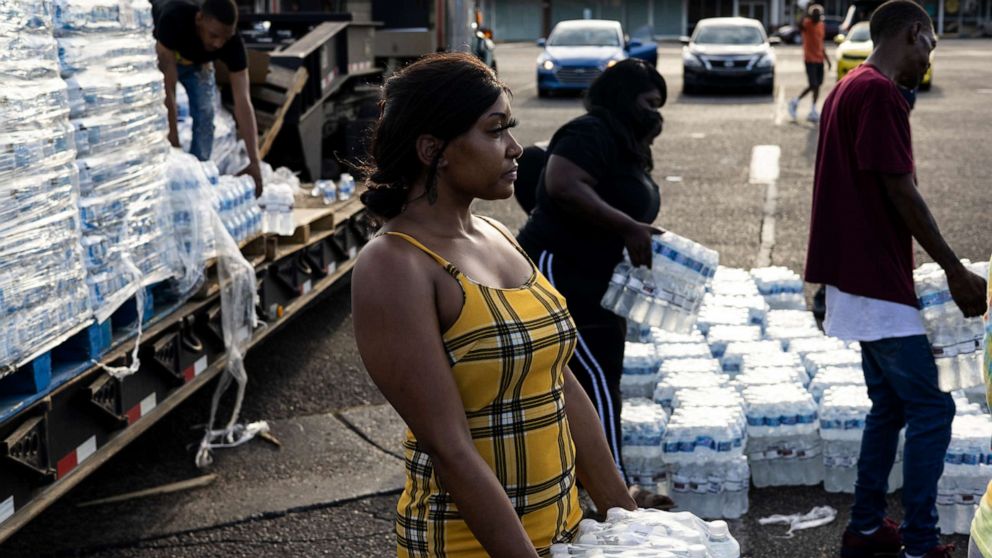- Mar 11, 2015
- 77,298
- 34,774
- 2,330
The Jackson Water Crisis Is a Public Health Failure Rooted in Systemic Racism
Residents of Jackson, Mississippi, started boiling their water when, at the end of July, local health officials warned the city’s water supply was cloudy. That was already an unacceptable ask, but the situation imploded this week when a local river flooded and caused problems at the OB Curtis Water Plant, resulting in a water shortage.
Mississippi Governor Tate Reeves issued a statement announcing a state of emergency on August 30. However, the statement didn’t outline plans to restore the water supply to the city’s capital, nor did it provide updates on when Jackson’s nearly 150,000 residents can expect the shortage to end. Instead, they have been told they’ll be without clean water “indefinitely,” local news outlets report.
Having clean water is very obviously a public health matter: Aside from having to boil water in order to safely drink it, people in Jackson don’t currently have the water pressure needed to flush toilets or fight fires, per the statement from Governor Tate’s office. The situation is so dire that the city temporarily ran out of bottled water to hand out to residents earlier this week, CNN reported. President Biden has officially declared a state of emergency for the state of Mississippi, which means urgent federal assistance is now on its way to Jackson, Press Secretary Karine Jean-Pierre tweeted.
It’s important to note that more than 80% of Jackson’s residents are Black—and this crisis is a painfully clear case of environmental racism. This term is used to describe “the disproportionate impact of environmental hazards on people of color,” according to Greenaction, a nonprofit organization dedicated to environmental justice initiatives. Some experts are comparing the current situation in Jackson to the 2014 water crisis in Flint, Michigan, during which the city’s primarily Black residents didn’t have access to clean water due to lead contamination for years.
“It’s not a coincidence. [Jackson] is a disproportionately Black city where people knew there was a problem,” and didn’t spend the money to fix it, Colin Jerolmack, PhD, professor of sociology and environmental studies at NYU, tells SELF. “It’s a result of a legacy of racism. You could draw a straight line [from] prior racist acts, such as discrimination, to environmental racism.”
The Jackson water crisis is only the latest example of the devastating impacts of environmental racism. It can be particularly insidious and hard to combat because there’s rarely one person to blame, Jerolmack says. It’s the result of years and years of discrimination and neglect, and people in power often rely on the public’s apathy toward racism, coupled with plausible deniability, to get away with it. “You can’t find some white lawmaker who said, ‘We don’t want to provide water to Black people,’” Jerolmack explains, but you can find examples of lawmakers who have voted against helping these very communities. “

The Jackson Water Crisis Is a Public Health Failure Rooted in Systemic Racism
Residents have been forced to boil their water for more than a month.
“You can’t find some white lawmaker who said, ‘We don’t want to provide water to Black people,’” Jerolmack explains, but you can find examples of lawmakers who have voted against helping these very communities. “
Last year, at least two bills aimed at helping raise money for water-system repairs died in the legislature. And in June 2020, Reeves, a Republican, vetoed bipartisan legislation designed to help residents with overdue water bills which, in turn, would have enabled the city to collect sorely needed water revenue.
In vetoing the bill, the governor acknowledged that residents "got overcharged in the past," but said the legislation would allow "politicians to say that individuals are not responsible for paying their water bill." Reeves also said there were "no safeguards in place" to ensure aid would go only to "the impoverished or needy."
This is an example of systemic racism. The white communities around Jackson and in Mississippi do not have this problem.




